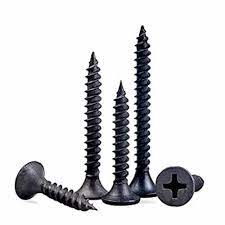Top Manufacturers of 5/16 Inch Flat Washers for Various Applications
The Importance of 5/16 Flat Washers in Various Industries
Flat washers are essential components in numerous applications and industries, playing a crucial role in the stability and longevity of mechanical structures. Among the various sizes available, the 5/16 flat washer stands out due to its widespread use and versatility. This article will delve into the significance of 5/16 flat washers, exploring their applications, manufacturing processes, and key players in the market.
What is a Flat Washer?
A flat washer is a thin, flat circular piece of metal or other materials that is used to distribute the load of a threaded fastener, such as a bolt or a screw. By increasing the surface area for the load to be spread over, flat washers prevent damage to the surface being fastened and help to reduce the wear and tear on both the fastener and the workpiece. Flat washers also provide insulation and protection against vibration, which is vital in many mechanical applications.
The Significance of 5/16 Flat Washers
The size designation “5/16” refers to the inner diameter of the washer, which is approximately 0.3125 inches. This size is particularly popular in various automotive, construction, and machinery applications. For instance, in the automotive industry, 5/16 flat washers are frequently used to secure components such as engine mounts, suspension systems, and body panels. The ability of a flat washer to distribute forces effectively makes it an invaluable part of any assembly that requires secure, reliable connections.
In construction, these washers are essential for ensuring that bolts used in timber and steel connections provide adequate support and stability. Their use minimizes the risk of bolts pulling through the material, enhancing the overall safety and durability of structures. Similarly, in industrial machinery, 5/16 flat washers are vital for mounting components, ensuring even pressure distribution to withstand mechanical stress.
Manufacturing Process
5/16 flat washer companies

The manufacturing of flat washers typically involves processes like stamping, machining, and cutting. Stamping is commonly used for mass production, where sheets of metal are fed into a stamping machine that utilizes dies to cut out the flat washers. The process ensures consistency and precision in size and shape, which is crucial for proper function.
Materials used for manufacturing 5/16 flat washers range from stainless steel and carbon steel to plastic and brass, depending on the application requirements. Stainless steel is often preferred for its resistance to corrosion and rust, making it ideal for outdoor and marine applications. On the other hand, plastic washers may be used in electrical applications where electrical insulation is necessary.
Key Manufacturers and Suppliers
Several companies specialize in producing 5/16 flat washers, playing a critical role in the supply chain across various industries. Companies such as Fastenal, Grainger, and McMaster-Carr are well-known for their extensive catalogs of fasteners and washers. They provide a variety of options in terms of materials, finishes, and sizes, ensuring that customers can find the specific flat washer that meets their needs.
Moreover, some specialized manufacturers focus on custom orders, catering to specific industry requirements or unique applications. These companies can tailor washers to meet stringent specifications, whether for high-temperature applications or environments that require extreme durability.
Conclusion
In conclusion, the 5/16 flat washer is an indispensable element in many industrial and commercial applications. Its ability to distribute loads, reduce wear and tear, and enhance the reliability of connections make it vital across various sectors such as automotive, construction, and machinery. As industries continue to evolve and demand high-quality components, the significance of flat washers, especially the 5/16 variant, will remain a fundamental aspect of mechanical design and engineering. Understanding their applications, manufacturing processes, and the key players in the market can help industry professionals make informed decisions, ultimately leading to safer and more efficient operations.
-
Top Choices for Plasterboard FixingNewsDec.26,2024
-
The Versatility of Specialty WashersNewsDec.26,2024
-
Secure Your ProjectsNewsDec.26,2024
-
Essential Screws for Chipboard Flooring ProjectsNewsDec.26,2024
-
Choosing the Right Drywall ScrewsNewsDec.26,2024
-
Black Phosphate Screws for Superior PerformanceNewsDec.26,2024
-
The Versatile Choice of Nylon Flat Washers for Your NeedsNewsDec.18,2024










